Thanks to fancy new upgrades like neural network learning, translation apps like Google Translate and Microsoft Translator are better than ever. They can translate almost anything you want. But you shouldn’t lean on them when you travel. In fact, I think you should use them as little as possible — if at all.
Illustration by Sam Woolley.
Google Translate and Microsoft Translator have both evolved into more than competent translation tools. They can translate speech almost instantly, read and translate text offline and even use your smartphone’s camera to translate signs and menus in real time. With either one of these apps you could easily navigate around a foreign land without a hitch. But if you aim to get as much as you can out of your travels, using them is a massive disservice to yourself and your overall experience.
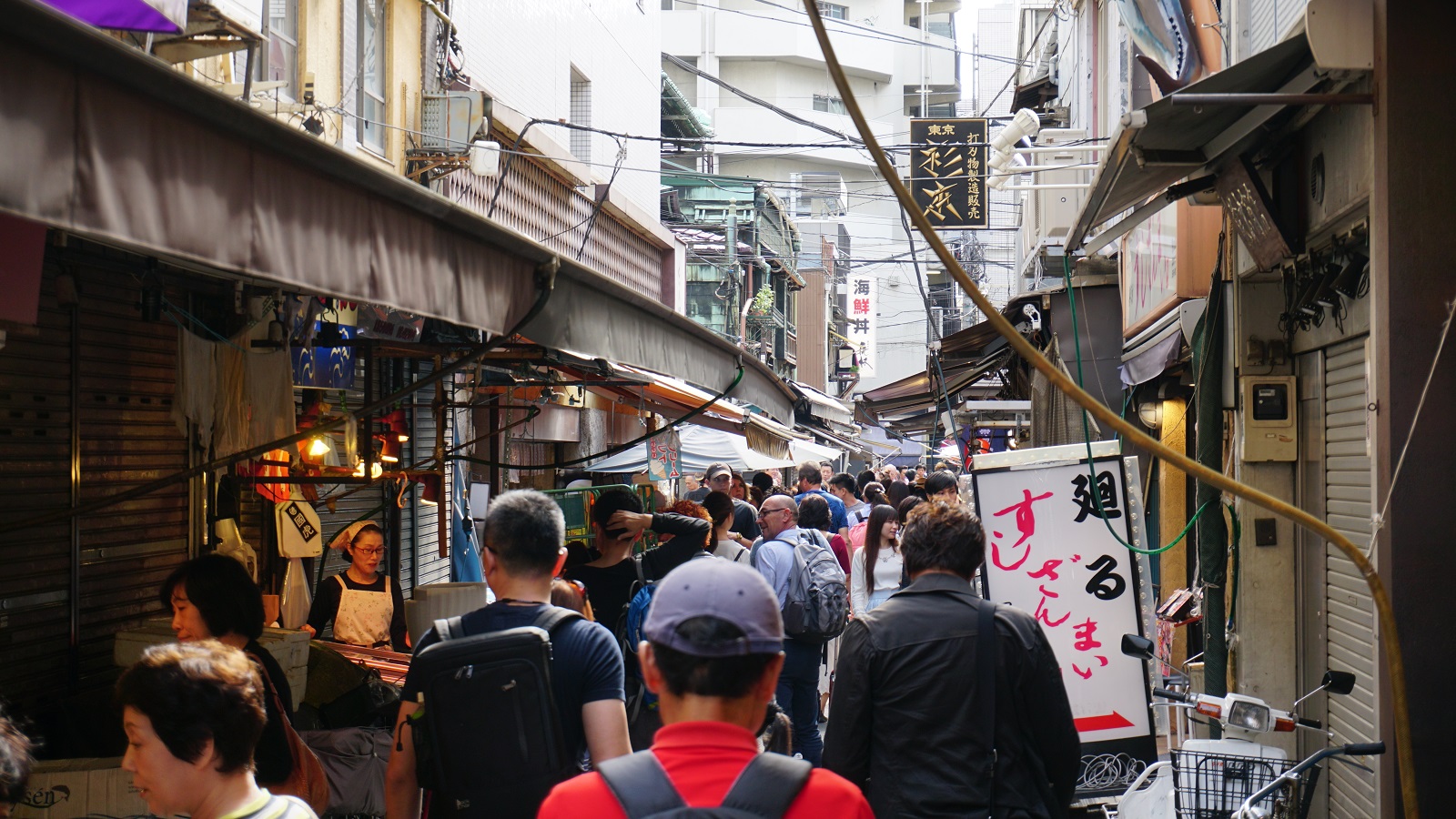
Tsukiji fish market, Tokyo, Japan.
Language is more than a barrier to overcome when you go see what’s beyond your front door. It’s how you begin to understand a culture. As writer Rita Mae Brown said, “Language is the road map of a culture. It tells you where its people come from and where they are going.” So by solely relying on a translation app, you’re immediately cut off from a key component of understanding.
But if you do a little homework and try to pick up some language basics, you open yourself up to real connections. You transform from tourist to traveller, and make an unparalleled show of respect, acceptance and cultural appreciation that doesn’t go unnoticed. As embarrassing as sounding out new words might be for you, it’s heartwarming for them.
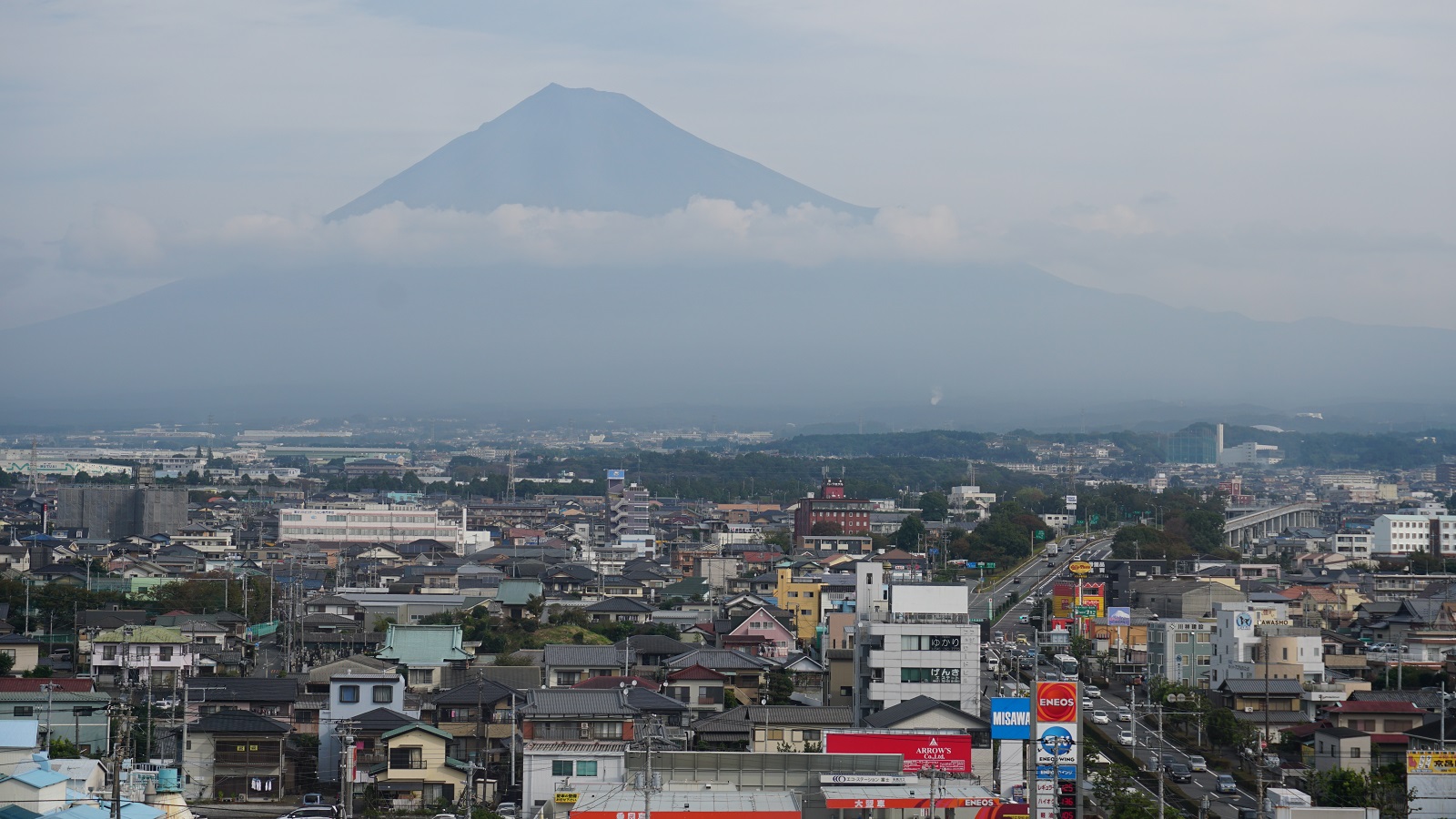
View of Mt Fuji from Fuji, Japan.
I experienced this firsthand on my recent trip to Japan. When I arrived, I was ready to bust out my phone at any moment. But I quickly realised that I was looking at a fascinating culture through a filter. After the first day, I put my phone in my backpack and decided to use the very little Japanese I had learned before I left. During my down time on trains and in hotels I would consult a small phrasebook I had brought along, but the translation apps I was so keen on trying never made another appearance, and I couldn’t be happier with my choice.
Through happenstance, I started a conversation with a nice woman in Shibuya simply by saying the melon bread treat I held in my hand was yummy. I kept obscenely persistent Shinjuku street salesmen — which is the nicest way I can say “pimps” — from harassing me with a few key phrases. I got help finding a hard-to-find item in a busy, seven-storey shopping complex in Akihabara. I accidentally tried and enjoyed several foods and drinks that I might have avoided if I had translated the menu. And I watched a melancholy kombini cashier’s face light up when I surprised her with a “good evening,” “I like these a lot,” and “thank you very much.”
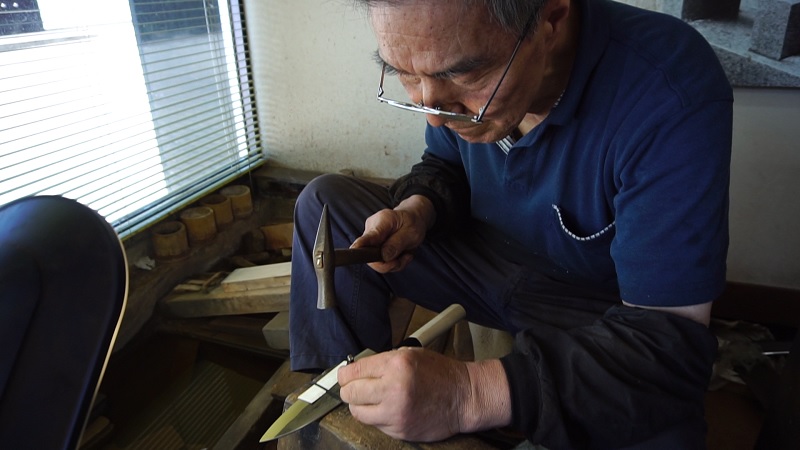
Master knife-maker in Kyoto, Japan.
These were spur of the moment experiences that wouldn’t have happened had I left all the language to my smartphone. I still would have had a fine trip, sure, but I would have missed out on all the little things that really stuck with me. You see a lot of spectacular places and things when you travel. You can take pictures of these places and things so you can look at them down the line, but I find the minutia of everyday life within a culture to be far more interesting and memorable, and those are the experiences you’re really travelling for — otherwise you could just look at pictures at home. Someday I’ll forget what Nijo-jo castle looked like, but I’ll never forget the conversation I had in Kyoto with a master knife-maker about engraving a freshly made blade.
Furthermore, taking the time to immerse myself reminded me how possible it is to actually learn a new language. Developing fluency in a second or third language can seem like such a steep hill to climb, but even breaking through the smallest of language barriers opens your mind up to the possibility of going beyond those fundamentals. And there’s nothing like necessity and urgency when it comes to pushing you through those barriers. When you keep your smartphone in your backpack, you have to rely on what you’ve learned. It forces you to try and get better. And when you realise how capable you actually are, it gives you a great confidence boost for learning more. I decided to take up the rest of the Japanese language, and its three alphabets, in my free time with the push I got from my trip.
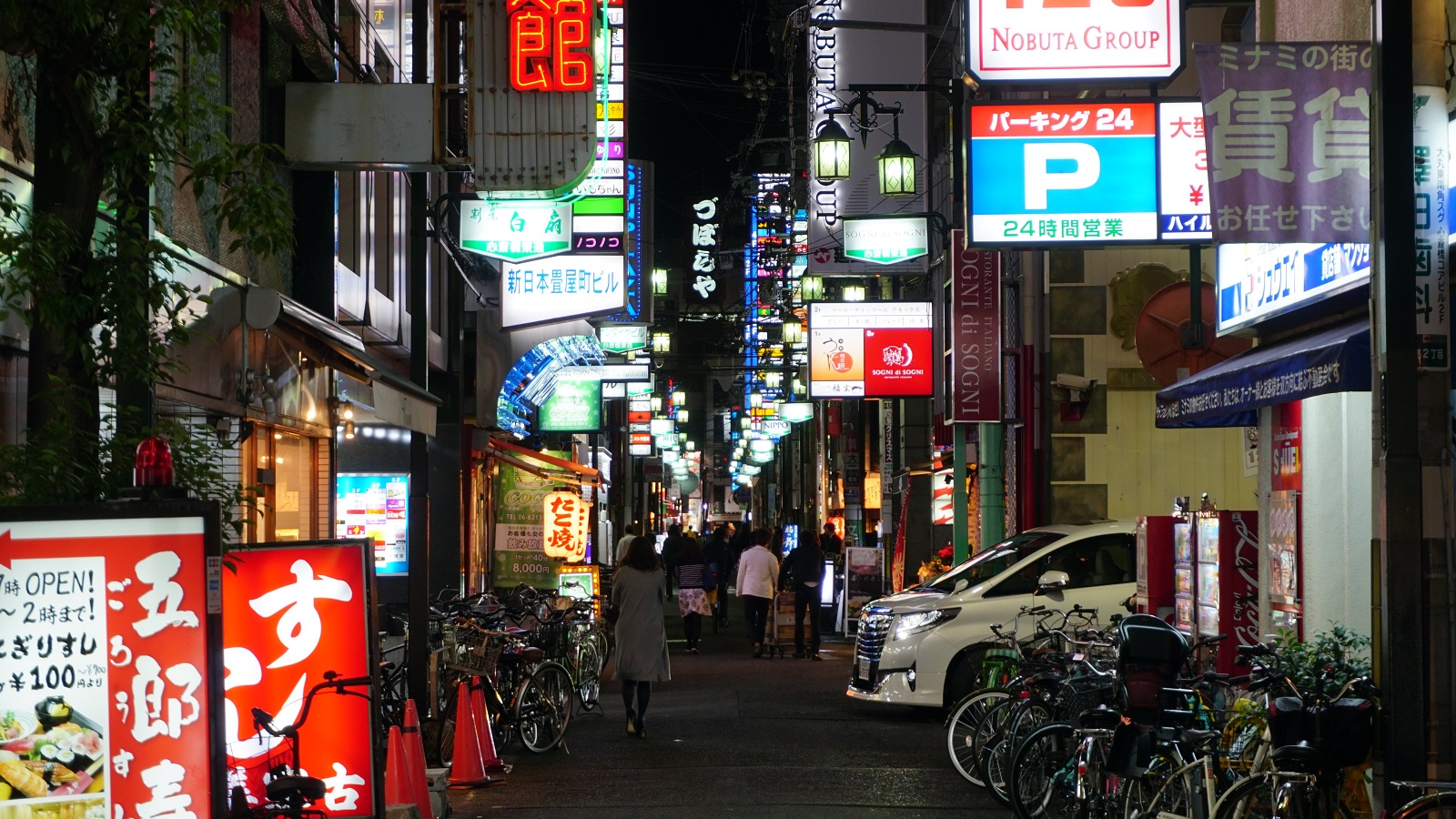
Osaka nightlife.
If you were playing a video game, using a translation app for all of your interactions is like the easiest setting. It might sound pleasant and stress-free, but you’ll just end up going through the motions until, before you realise it, you’re at the end. There’s no challenge, no thinking on your feet and less adventure — which means it will be less memorable.
You don’t have to crank the difficulty up to “Hard” and completely avoid translation tools like I did, but at least play on “Normal”. Have translation apps at the ready in case you really need them, but do yourself a favour and attempt to immerse yourself in the culture. When you speak someone’s language — even just a little bit — you invite possibility that wouldn’t be there otherwise.
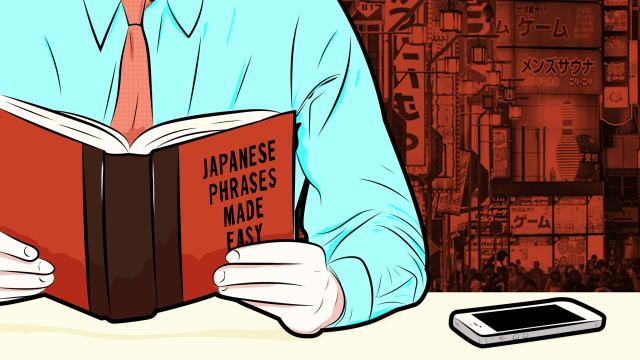
Comments
One response to “Translation Apps Are Great Now, But Don’t Use Them”
App solutely! I adore languages, and as much as I enjoy using tech to help, speaking the basics of several has really allowed me to connect with people while travelling. Without that, what’s the point?
Agreed. You travel to experience places, cultures and peoples. Making even a small effort to know some of the language can really open up people to you. Go to parts of China outside the major cities and see the great reaction you get when you sit with locals and try to learn from them as they do the same with you. Exhilarating. Use the apps for dire emergencies only.